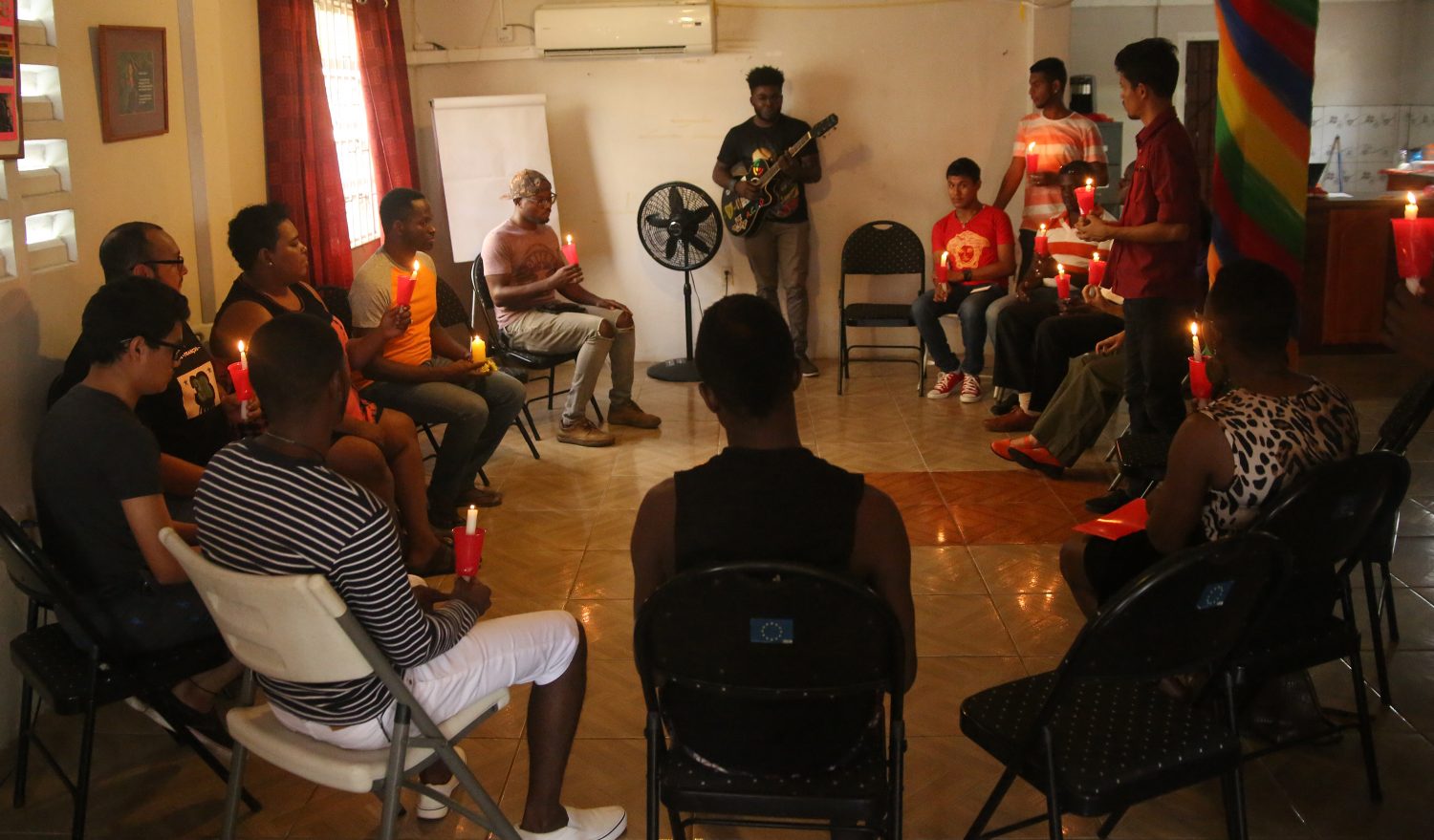In Guyana treatment is available for HIV, the virus that can lead to AIDS, however stigma associated with the disease continues to prevent persons from accessing this help.
This was stated by Programme Manager of the Ministry of Public Health’s National AIDS Programme Secretariat, Dr. Rhonda Moore. Moore was at the time speaking at the ninth annual AIDS Candlelight Memorial organized by the Society Against Sexual Orientation Discrimination (SASOD) on Saturday.
Moore who delivered the feature address at the event explained that the Ministry of Public Health is open to working with civil society to ensure that persons are free to access public services such as HIV/AIDS treatment without stigma and discrimination.
She stressed that government has made treatment available for both the disease and other associated illnesses at public health institutions.
The event is the local iteration of the International AIDS Candlelight Memorial which is coordinated by the Global Network of People Living with HIV. It is one of the world’s oldest and largest grassroots mobilization campaigns for HIV awareness in the world. Started in 1983, the International AIDS Candlelight Memo-rial takes place every third Sunday in May and is led by a coalition of some 1,200 community organizations in 115 countries.
Managing Director of SASOD Joel Simpson noted that the fight against HIV/AIDS is at a turning point.
“We are at a point where national response needs to think about transition and sustainability… as international donor resources dwindle,” he explained. Simpson noted that SASOD is willing to work with government so that members of the LGBTI community affected by the disease can access treatment.
He noted that while “traditionally” LGBTI organizations are skeptical to work with state agents especially in states such as Guyana which criminalizes their gender expressions, SASOD is taking note of regional developments and looking to the future which they hope will be better.
He referenced recent rulings in Belize and Trinidad and Tobago which acknowledged that anti-LGBTI laws are a violation of constitutional rights and noted that SASOD is contemplating filing its own challenge to local “laws which criminalize same sex relationships.”
“If you have laws which contradict the constitution you need to bring that to the judiciary’s attention,” Simpson concluded.





